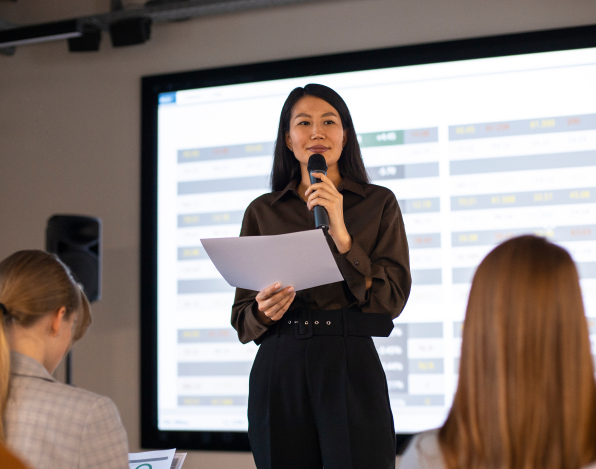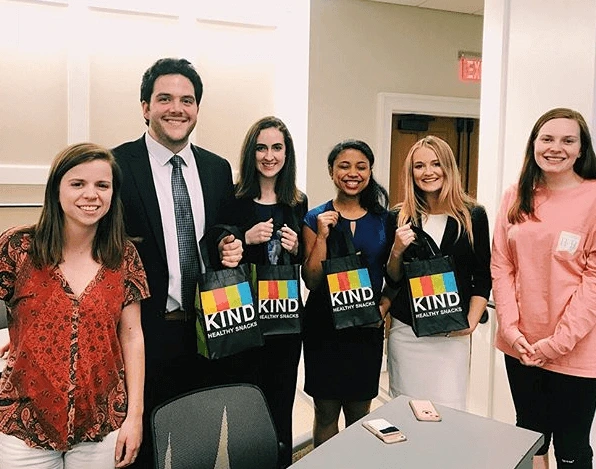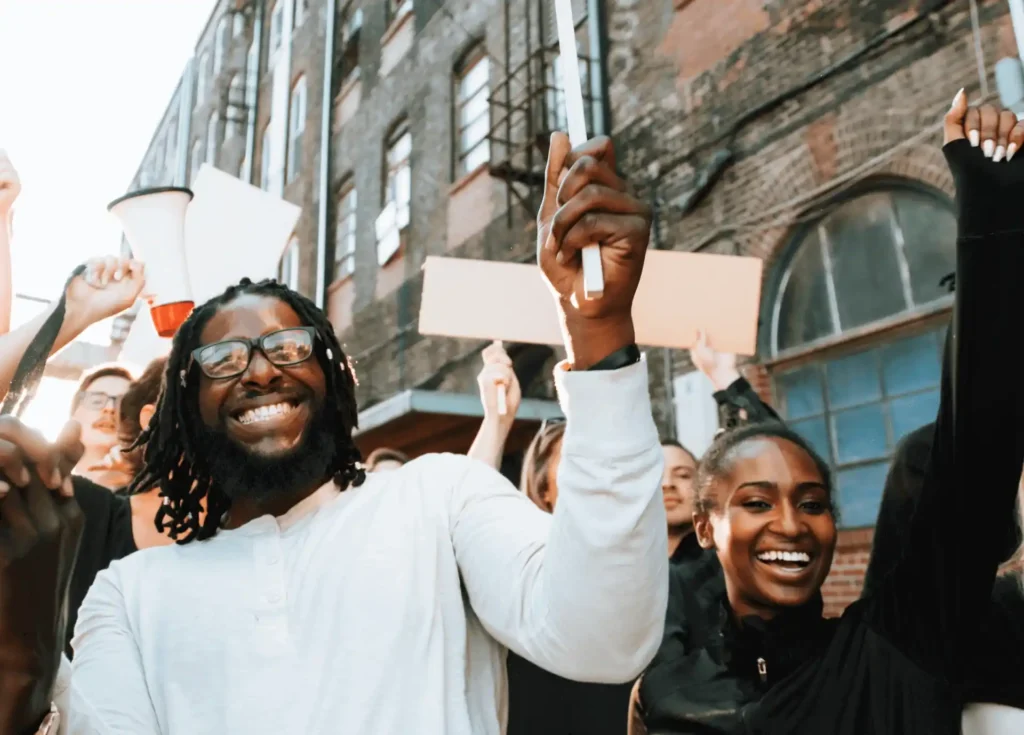By Lisa Merriam
The “Women Leading the Way Series” is part of the AMA New York’s initiative to support women in marketing and help them flourish in their careers. Sponsored in part by Cisco, this series profiles women who are changing the game of marketing in the workplace.
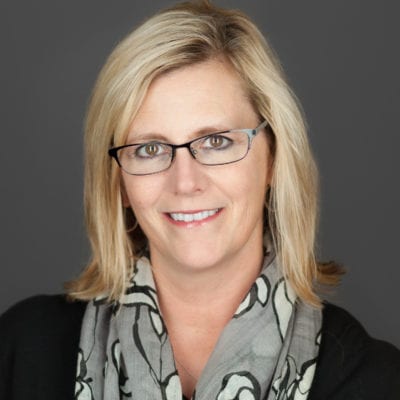
Amy Protexter is the Senior Vice President, North America Marketing of Insight Enterprises, which provides computer hardware, software, cloud solutions, and IT services to business, government, education, and healthcare clients.
Amy shares with us a little about her work at Insight, the path of her career, and advice for women just starting out, as well as seasoned pros.
How did you get started on your career path?
It’s interesting how you get to know yourself better over the course of your life. When I think about the positions that I held, even early on in my career, there was always one thing that was a common denominator for me. That is a desire to contribute to organizations that make a difference. Sometimes it’s not a straight line. For example, my first job out of college was at the Department of Transportation. On the surface, you might think, how does that contribute? But it was in South Dakota. Roads are very important in South Dakota because it’s a very wide-open spread out state.
Throughout my career, I’ve always found my way to organizations where I’m contributing—and they’re contributing as well—to the greater good. I’ve held twelve communications leadership roles in healthcare, health insurance, education technology, and now in technology. At Insight, we provide technology solutions that help organizations of all types and sizes run smarter, including healthcare organizations looking for better ways to treat patients and, in today’s dispersed environment, helping students learn remotely from their teachers. Those are the kinds of things that motivate me. I’ve always found those are the organizations where I do my best work.
What is the biggest challenge you faced?
One of the most challenging parts of my career was the years I spent in healthcare delivery. There aren’t many industries in this world that are life and death, but healthcare truly is. I led a big marketing and PR team in a very large health system in the Midwest. We faced some very serious and far-reaching crisis communication issues, such as the need to suddenly close a very large nursing home due to structural problems, two separate 60-minute interview inquiries, and votes of no confidence for not one, but two CEOs during healthcare reform. I was just trying to provide stability, communication, leadership, being a voice of calm in those stressful—sometimes very high pressure—situations.
Ultimately, while I loved being part of healthcare organizations, I finally had to turn that passion elsewhere. I felt like it would be easy to burn out in that kind of environment all the time. Frankly, I was discouraged during the healthcare reform debates because I had a passion for making health care better for patients, more consumer-driven, and more patient-focused. I felt like there was a lot of status quo protection by insurance companies and even large healthcare systems. That was very challenging because it was sometimes hard to continue to find that passion and drive when you weren’t making a lot of progress.
One of the things I learned about myself is that sometimes when the world is at its craziest, I’m my calmest, which is sort of counter-intuitive. But I think it’s because I immediately go to what is my action plan: what are the things that we need to do, how do we need to address whatever situation that we’re in. There’s also been a realization on my part that so goes my leadership, so goes the people around me. If I’m anxious, I can’t imagine what they’re going to be feeling. If I’m calm, they can think better and continue to do their jobs. Even if you are twisted up inside, you just have to tell yourself: “Okay, I can do this.” I need to be this calm voice of reassurance and reason in a time when everybody’s completely stressed out. It is easy to get burned out or be discouraged about bad news we couldn’t control. I kept my focus on making things better for the patient and staying calm in the storm. It helps to have an action plan, know what needs doing, and staying focused on that.
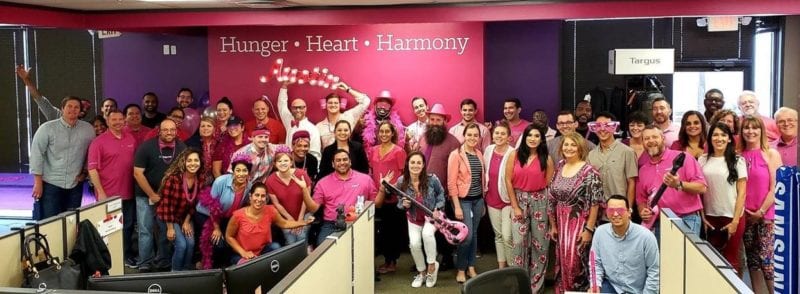
Photo by Insight Enterprises
What was your biggest achievement?
One of the first things that executive leadership asked me to do here at Insight was to rebrand the organization. Insight is an incredible organization and has grown tremendously into a global company through acquisitions. It was started in 1988 by two brothers who successfully imprinted their DNA of culture within the company. That has kept going with a culture of innovation and reinventing oneself, yet we have a real caring culture that takes care of people. However, it had been about 25 years since the organization’s founding, and no substantial work had ever been done to change or crystallize our brand identity following the merging of different companies and cultures that had come together through the acquisitions.
This was my fifth rebrand, and it has been, by far, the most successful. We crystallized our spirit of innovation through new brand imagery punctuated by a bold fuchsia flare and fused our ideals into three simple values: hunger, heart, and harmony. I’ve just been incredibly blown away about how our teammates have responded, how real these values are, and how much they live them. It’s even to the point that many of our partners, which are some of the largest technology brands in the world, know our values better than they know their own. I get a lot of satisfaction from the fact that I was able to help simplify and crystallize for the organization something that has given it a great deal of energy over the last few years.
I have to say, the other biggest achievement is the team that I have at Insight. I’ve been able to work with some of the most bright, talented, creative, passionate marketers. Every day, I’m amazed by the things that they do, the ideas they bring forward, and creating an identity for marketing within that culture of Insight, which really does attract and retain bright, inspirational, creative people. These are proud moments for me.
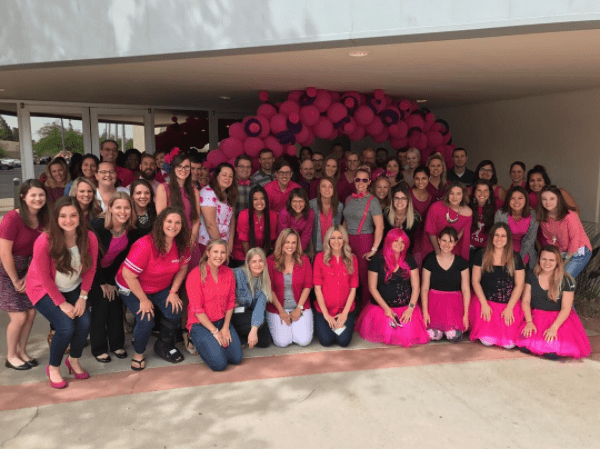
If you could do one thing over again, what would it be?
We all get to learn a lesson once. The mistake happens when you have to learn it twice. I learned the hard way that I am best on the client-side and made a mistake twice by going over to the agency side.
When you see a closed door, open it, or break through it. Early in my career, I left a job I really loved to try a new adventure in a public relations agency. I thought that sounded so glamorous and quickly learned I missed being the client, being in the organization, and truly understanding what the organization needed from a culture, communications, and brand perspective.
I made the same mistake again later in my career. I went to a consulting firm and, again, realized quickly, it was not necessarily something I love to do; just work with a client for a hot minute and figure some stuff out, and then leave. I always wanted to see where this would go, and how could you take it further? My mistake was not realizing this the first time, and then making the mistake again.
I like being on the client-side so that I can carry things through to completion. I don’t like standing on the side, advising, and helping. I want to be in the middle of it. But you can’t beat yourself up. You have to pick yourself up and find a new opportunity. In some ways, that bad decision led me to where I am today, and so for that, I’m super grateful.
Any advice?
I recommend a few things—coming from a marketing place because that’s where I spent my career.
- Be a sponge. Be a lifelong learner. Things in marketing have been changing so rapidly in terms of the technology and data that is available to make decisions.
- Being in a publicly-traded Fortune 500 global technology company, I learned that you must be a business person first and foremost to be an effective marketer. That means understanding your organization’s balance sheet and how the products and services you’re taking to market work. Knowing just marketing is not enough.
- Make sure you have strong writing and speaking skills. I don’t care what role you’re in, those that can provide exceptional communication, whether written or verbal, are always going to have a leg up.
- In terms of softer skills today, you must be resilient and open to change. There is no such thing as the status quo anymore. The world is moving way too quickly, and, if nothing else, the last eight or nine months should have proven how quickly things can change. If you aren’t able to find that resilience within yourself, it’s something you have to work on. It’s not just something you have, or you don’t have. It’s really about an attitude and a willingness to be open to new situations and challenges.
- I would say walk through any open door and if you can’t find a door, climb through a window.
- The other thing that I’ve realized is that I am most creative when I’m in an uncomfortable and new situation. So put yourself in a new situation. Learn something new. Volunteer for a new organization. It’s amazing. When you put yourself in a different spot, your wheels start to turn, and you will begin to see a lot of opportunities that maybe you didn’t see before. We’re in this incredible era of change right now. This shift can create opportunities that you might not have been able to see a year ago.
What would you say to anyone considering a new career path?
I’ve always known people who can somehow map out their next five or 10 or 15 years. I have never been that person. As much as I might have aspired to be that way, so many times when I look back over the decisions I made when I felt stuck, it was because I listened to my gut. I took the opportunity that I believed would spark my passion. I rolled up my sleeves and became part of it. If it turned out that that wasn’t really what I hoped, I didn’t beat myself up. I just moved on and found another door to walk through.
My career has been organic. It’s not been intentional, and maybe some people would look at that as a bad thing. But I have to say, I’ve had some of the most incredibly rewarding experiences. One of my early jobs was at Mutual of Omaha. I traveled with Jim Fowler from the show Wild Kingdom, for those of you old enough to know who he is. I even held snakes for him. If I had an intentional view for myself, what my career would be, I’m not sure I would have ended up in that spot. That’s why I believe in organic careers.
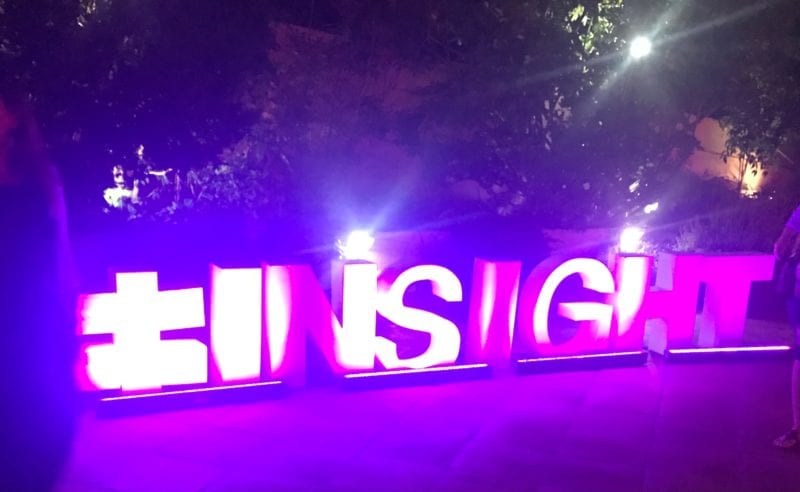
What has 2020 taught you?
Like every company right now, we’re trying to figure out how to navigate this time that we’re in. In doing so, we position ourselves to be stronger than ever coming out of it and more ready than ever when that tide turns.
For lessons learned from this transformative year, I wrote a note this morning to my team. I was reflecting this week that on March 13th, I rode an airplane back from Montreal after being at a conference and having dinner the night before with a friend. I haven’t done any of those things since March 13th. I haven’t been on a plane. I haven’t been with people beyond my family. That’s how quickly the world can change.
There’s a hope that at some point when there’s a major breakthrough, that we can get back to maybe a world where there isn’t so much to be concerned about so we can all work together to continue to make the world a place for everyone. Ultimately, we’ll look back on 2020 as a year that inspired a new sense of resilience and reimagination of how we work, play, and interact together. It’s that sense of renewal that we’re embracing at Insight, and I’d like to think that one of the good things to come out of this is a more intentional focus towards a positive outlook. True innovators see the possibilities within any situation, and 2020 is the year that has inspired unlimited opportunities to reconsider how we think and how we go about what we do.
Nominations are open.
AMA New York is looking for women with a bold vision for driving their business forward and actively seeing that vision through to execution. Nominees do not have to fall into a specific title category, age range, or level of seniority, or be a member of AMA New York. They simply need to be women using their influence to change the game one play at a time. Nominate someone today.
Lisa Merriam serves on the American Marketing Association board of directors and is chairman of the communications committee. She is a marketing, brand, and content consultant at Merriam Associates. She is the co-author with Milton Kotler of Weaponized Marketing: Defeating Islamic Jihadists with Marketing that Built the World’s Top Brands, Rowman Littlefield, Spring 2020.




